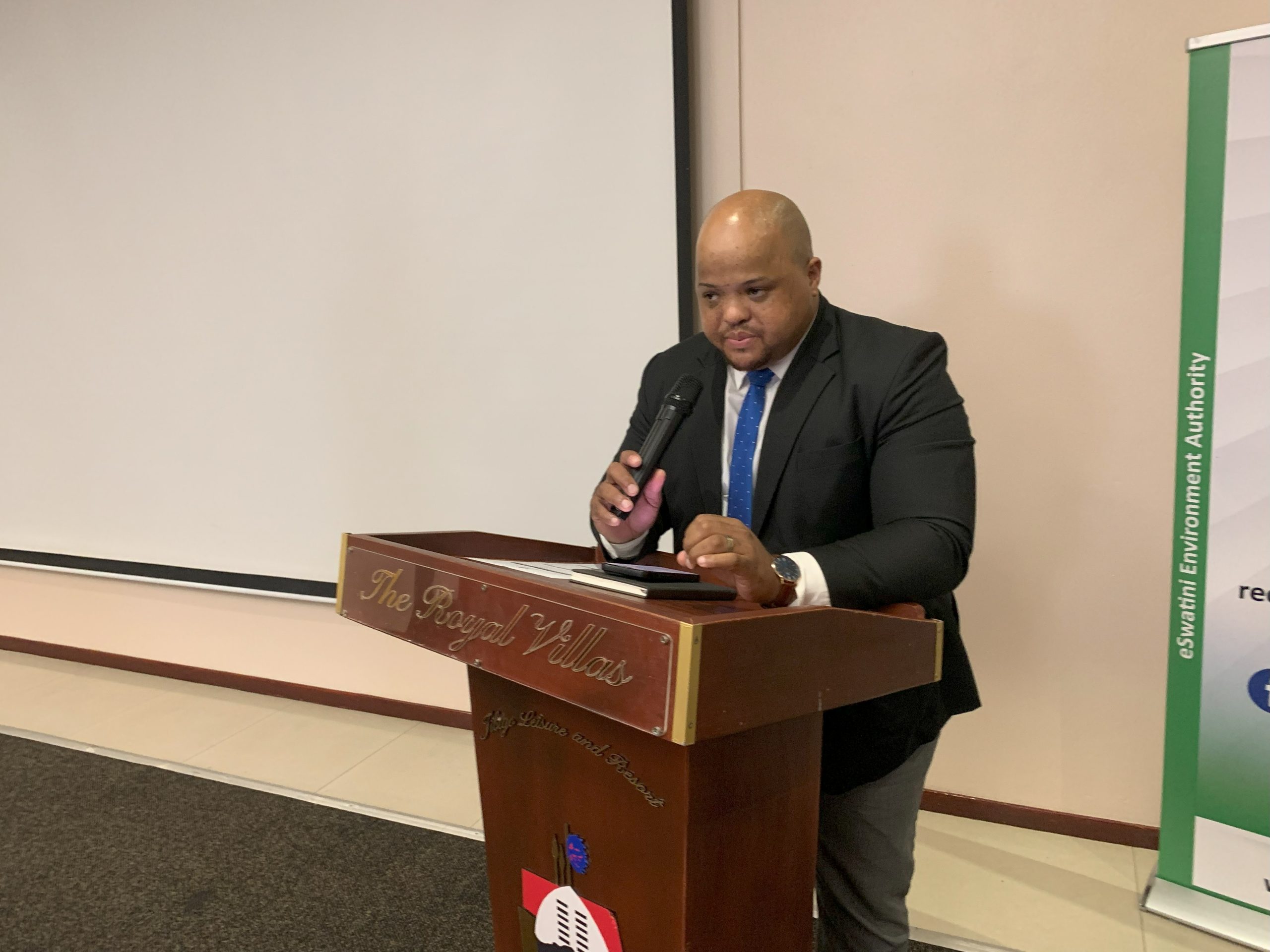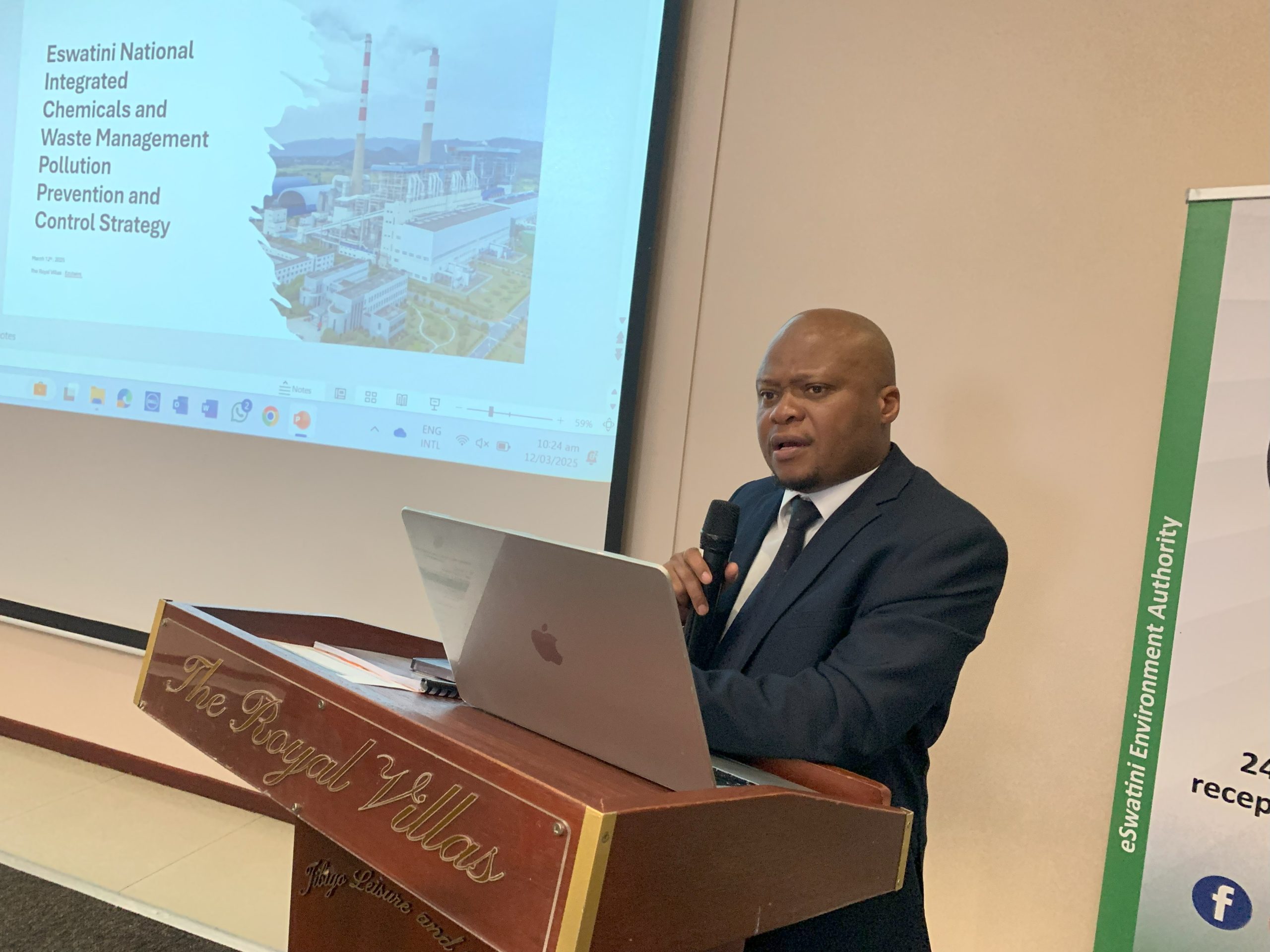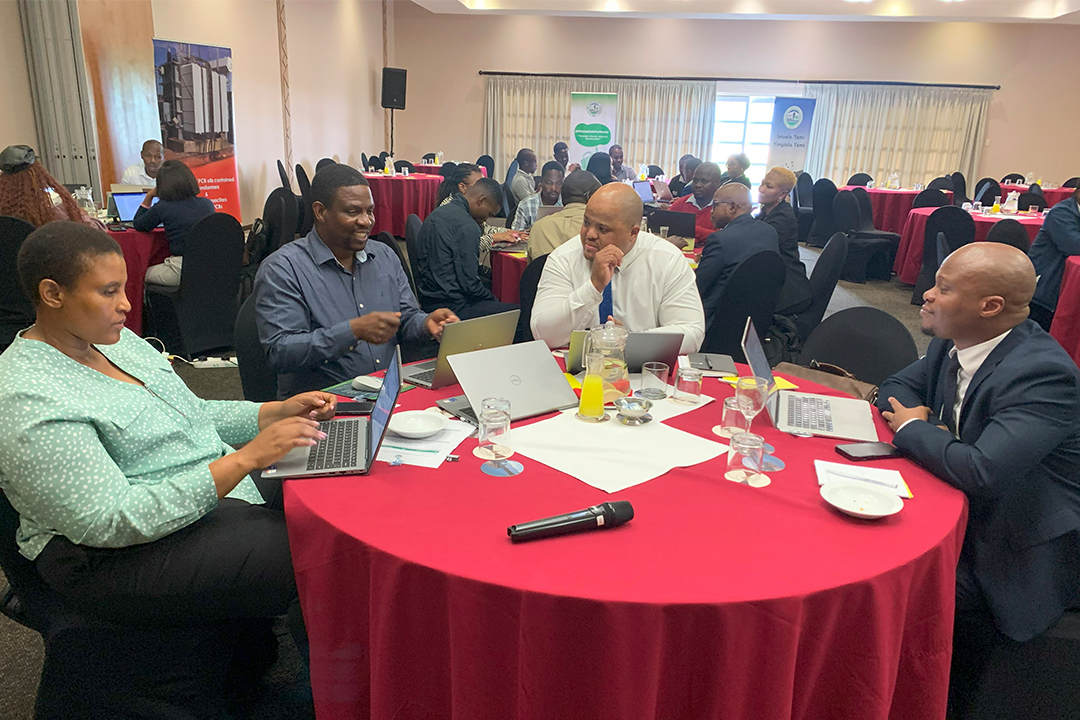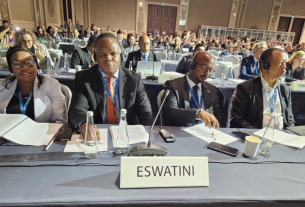BY TLALANE DLAMINI
EZULWINI -The Eswatini Environment Authority (EEA) recently convened a pivotal validation workshop at The Royal Villas, bringing together key stakeholders to refine and finalize the National Integrated Chemicals and Waste Management Strategy.
This initiative is set to chart a sustainable path for managing chemicals and waste in Eswatini, addressing pressing environmental concerns while aligning with international best practices.

Speaking on behalf of EEA Executive Director Isaac Gcina Dladla, Director of Environmental Assessment and Compliance, Mxolisi Maphanga, highlighted the urgency of adopting an integrated approach to chemicals and waste management.
He emphasized the strategy’s role in ensuring environmental sustainability and protecting public health, urging participants to contribute actively to its refinement.

The workshop featured an in-depth presentation by Chemicals and Waste Management Consultant, Vusi Matsebula, who provided a comprehensive overview of the strategy’s key components. These included regulatory frameworks, waste reduction initiatives, and long-term environmental sustainability measures, laying the foundation for constructive stakeholder discussions.
Collaborative Discussions for Effective Implementation
Participants engaged in dynamic group sessions aimed at assessing and strengthening the strategy’s framework. The discussions centered on:
- PESTEL and SWOT Analysis: Evaluating external and internal factors influencing chemicals and waste management.
- Power Interest Matrix: Identifying key stakeholders and their role in policy execution.
- Implementation Plan: Outlining clear steps for effective strategy deployment.
- Strategic Themes and Monitoring & Evaluation (M&E): Ensuring the framework remains adaptable and goal-oriented.

Mpendulo Mamba led a session on stakeholder engagement, explaining how the Power Interest Matrix could be applied to identify and assess key stakeholders’ influence and involvement in national waste management efforts. His insights reinforced the need for inclusive participation to enhance policy effectiveness.
In another key session, Nqobile Gama presented a thorough PESTEL and SWOT analysis, shedding light on the external (Political, Economic, Social, Technological, Environmental, and Legal) and internal (Strengths, Weaknesses, Opportunities, and Threats) factors shaping waste management in Eswatini. This structured evaluation provided critical insights for refining the national strategy.
Pathway to a Sustainable Future
Lusanda Mziyako presented the Implementation Plan, detailing actionable steps, responsibilities, and timelines necessary to operationalize the strategy. She emphasized collaboration between government agencies, private sector stakeholders, and civil society organizations as essential for achieving long-term success.
Closing the thematic discussions, Musa Sibandze highlighted the importance of reviewing strategic themes to ensure continuous adaptation to evolving environmental challenges. He stressed the need for a flexible and responsive approach to chemicals and waste management, aligning national efforts with global best practices.
A Commitment to Environmental Sustainability
The workshop provided an essential platform for stakeholders to share insights and contribute to the development of a robust, actionable chemicals and waste management strategy. Head of Environmental Impact Assessment, Monitoring, and Coordination at EEA, Belusile Mhlanga, reiterated the authority’s commitment to fostering a cleaner, safer, and more sustainable environment. She affirmed that the finalized strategy would serve as a roadmap for Eswatini’s efforts in chemicals and waste management, ensuring compliance with international environmental standards.
With stakeholders aligned and a clear path forward, Eswatini is set to make significant strides in improving chemicals and waste management, setting a strong foundation for a sustainable future.



